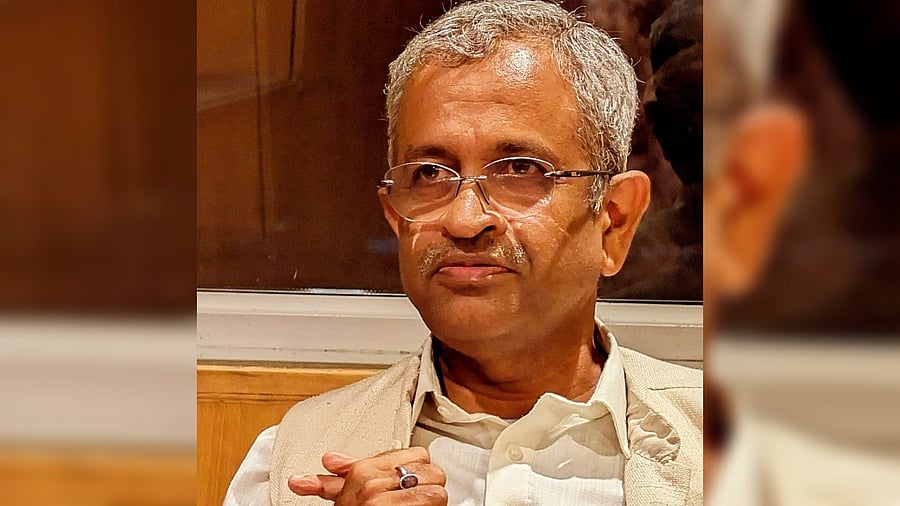
Sanjay Hedge
The recent deportation of 104 Indian migrants, hands and feet bound, from the United States on a military aircraft has reignited debates about India’s own challenges in addressing unlawful immigration. While the US action underscores India’s ease of doing business on accepting the return of its illegal immigrants, it also highlights the lack of similar cooperation from India’s neighbours.
India’s approach to deportation is mired in legal, political, and humanitarian complexities, particularly in states like Assam, where the issue is deeply intertwined with historical and socio-political realities.
The Assam conundrum
Assam has often been described as the epicentre of India’s illegal immigration crisis. The state has long claimed to grapple with the influx of migrants from Bangladesh. However, the trend of branding all Bengali-speaking Muslims as Bangladeshis in Assam ignores the geography and history of pre-Partition India. For a brief period of time, Assam was even a division of East Bengal and ruled from Dhaka. The movement of Bengali peasant labour in those times contributed to a significant disbalancing of the entrenched Assamese elite, in electoral contests. There was also an upsurge in migration, during the troubled times preceding the liberation of Bangladesh in December 1971.
A mass nativist movement since 1978 led to the 1985 Assam Accord which forms the basis of Section 6A of the Citizenship Act, 195. It categorizes migrants based on their date of entry into India. Those who entered India after March 24, 1971, are deemed illegal immigrants and are subject to deportation. However, the implementation of this provision has been fraught with challenges. Many children of late entrants have been born in India and know no other country. The lack of cooperation from Bangladesh, which refuses to acknowledge these individuals as its citizens, has rendered deportation virtually impossible in many cases. This has led to the creation of detention centres, where those declared foreigners by Indian tribunals but are unacceptable to Bangladesh, languish for years, often without any hope of release.
Legal safeguards and historical realities
Critics of India’s deportation process often point to the US model as a benchmark. However, this comparison overlooks critical differences in the legal and historical contexts of the two countries. In the US, individuals deported have typically exhausted all legal options over an extended period, ensuring due process. In contrast, India’s deportation process must navigate a complex web of legal safeguards designed to protect genuine citizens from wrongful targeting.
The Foreigners Tribunals, tasked with identifying illegal immigrants, have been criticized for their lack of transparency and procedural inconsistencies. Many individuals have simply been unable to prove their citizenship due to inadequate documentation, a problem exacerbated by poverty and illiteracy. The Supreme Court has repeatedly emphasized the need for a fair and humane process, recognizing the potential for harassment of genuine citizens.
The state’s National Register of Citizens (NRC), updated in 2019 under the supervision of the Supreme Court, excluded 1.9 million people, only some of whom were also declared foreigners by Foreigners Tribunals. Failure to prove descent from the original NRC list of 1951, does not ipso facto deprive a person of Indian citizenship. Inclusion in the NRC list however proves the person’s citizenship beyond doubt.
The Supreme Court last week pulled up the Assam government for its failure to deport 63 declared foreigners due to the unavailability of their addresses in Bangladesh. These individuals remain in detention centres, highlighting the logistical and legal hurdles in implementing deportation orders.
Political narratives and practical challenges
The Bharatiya Janata Party, which has long championed a strong anti-illegal immigration stance, has been in power both at the Centre and in Assam for several years. Despite this, the party has struggled to expedite deportations, raising questions about the feasibility of its political narrative. The deportation of illegal migrants from Bangladesh is not merely a legal issue but also a diplomatic one, requiring cooperation from the Bangladeshi government. The absence of such cooperation has left thousands in legal limbo, fuelling political tensions and keeping the issue alive.
Moreover, the deportation process is further complicated by the sheer scale of the problem. In 2023-24, India deported 411 Bangladeshi, 78 Ugandan (78). While these numbers reflect some progress, they pale in comparison to the estimated millions of illegal migrants in the country. The logistical challenges of identifying, detaining, and deporting such a large population are immense, particularly in the absence of a comprehensive policy framework.
The path forward
Addressing the issue of illegal immigration in India requires a multi-pronged approach that balances legal safeguards with effective enforcement. The Supreme Court’s intervention in Assam underscores the need for transparency and accountability in the functioning of Foreigners Tribunals. At the same time, the government must engage in diplomatic efforts to secure Bangladesh’s cooperation in the deportation process.
Ultimately, the deportation of illegal migrants is not just a legal or administrative challenge but a humanitarian one. As India grapples with this complex issue, it must ensure that its policies are rooted in the principles of justice, fairness, and respect for human rights. Only then can it hope to resolve a problem that has defied solutions for decades.
While the US model of deportation may appear efficient, India’s unique historical and socio-political realities demand a more nuanced approach. The road ahead is fraught with challenges, but, with careful planning and a commitment to due process, India can navigate this complex issue without compromising its constitutional values.
(The writer is a senior advocate designated by the Supreme Court of India and an occasional media commentator on public questions.)